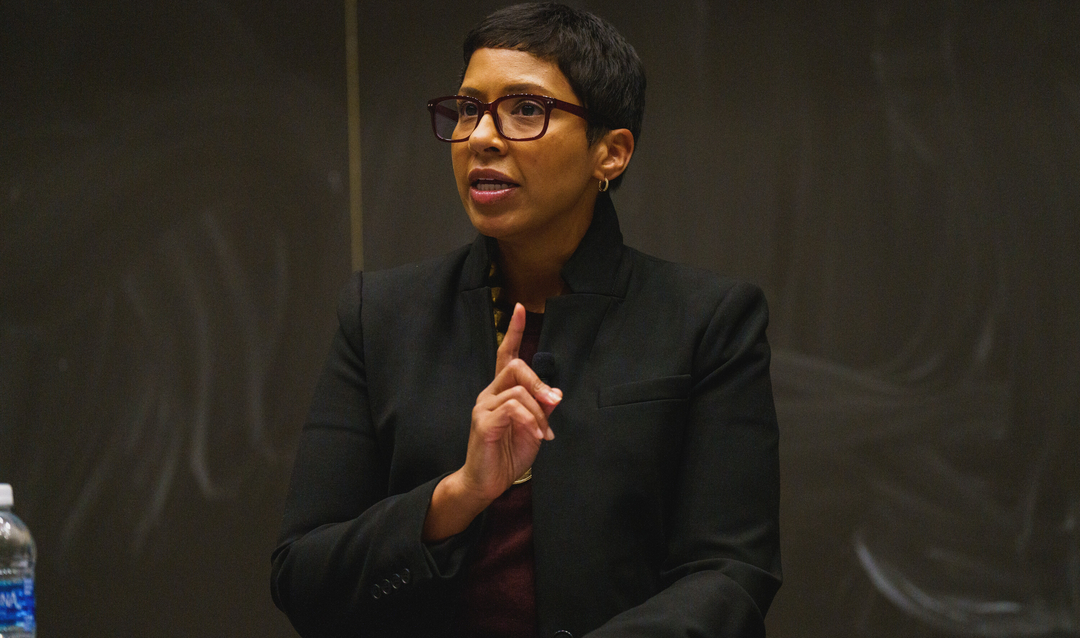Testifying before the U.S. Senate Judiciary Committee at Brett Kavanaugh's Supreme Court confirmation hearings in 2018, legal expert Melissa Murray predicted that if confirmed, the nominee would provide the fifth vote to overturn Roe v. Wade. In June 2022, Justice Kavanaugh did just that as the court ended the constitutional right to abortion in Dobbs v. Jackson Women's Health Organization, giving each state the right to restrict and even ban abortion.
On Tuesday evening, Murray, a New York University law professor and frequent MSNBC contributor, told about 100 people at Lehigh's 43rd Annual Tresolini Lecture at Neville Hall that the Dobbs decision may be a harbinger of future court rulings that dismantle other reproductive freedoms and the even the right for same sex couples to marry.
Murray said that writing in Dobbs, Justice Samuel Alito claimed that the 1973 Roe v. Wade decision "preempted debate and state legislative deliberation on the issue of abortion rights. Justice Alito then went on to insist that democratic deliberation was and should be the proper mechanism for resolving competing interests at stake in the abortion debate."
"Justice Alito's invocation of democracy and democratic deliberation had the undeniable rhetorical power in that opinion," she said. "It allowed the Dobbs majority to lay waste to decades worth of precedent while rebutting charges of judicial overreach ...."
But, Murray said, the argument of "disrupted democracy" emerged years after Roe was decided as a way of discrediting the ruling and then toppling Roe and the 1992 decision Planned Parenthood v. Casey which had upheld the right to abortion but allowed more restrictions on access.
"As I explain, although Dobbs traffics in the rhetoric of democracy, in fact its conception of democracy is both internally inconsistent and extraordinarily myopic," she said.
"The majority's embrace of democracy not only shields the overruling of Roe and Casey from claims of judicial activism and overreach, but it may eventually lay the groundwork for the vindication and protection of fetal personhood and the complete and total abolition of abortion in the United States," Murray said.
If the Supreme Court can ignore stare decisis, which is adhering to precedent, in overturning Roe, then what's to prevent the conservative majority from overturning the court's Obergefell ruling which legalized same-sex marriage? she asked.





